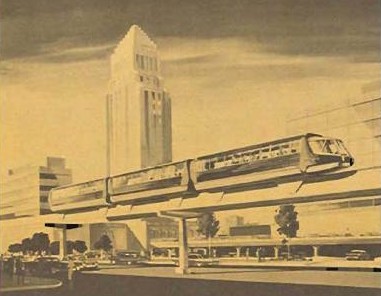You've probably heard some grumbling or chuckling -- depending on where you live -- about the way federal highway funds are distributed to states.
And it's true that for quite some time, the country was divided into "donor" and "donee" states, each group either contributing more revenue than they received from the Federal-Aid Highway Program or vice versa.
But that is no longer the case, according to a new report from the Government Accountability Office. Between 2005 and 2009 every state in the union received more Federal-Aid Highway dollars than it contributed through fuel taxes and other fees.
But while that might sound great, the truth is it's bad news no matter where you live. This was only possible because the roughly $200 billion in Federal-Aid spending over that time period included $30 billion from the general fund -- a trend that presents some rather obvious sustainability concerns, to say nothing of equity for non-drivers.
"A significant amount of highway funding is no longer provided by highway users," GOA stated in the report.
Discrepancies in "rate-of-return" were also mitigated by the 2005 SAFETEA-LU which offered an "equity bonus" to donor states. The program guaranteed a minimum return to states, resulting in a higher rate-of-return for all states, and as much as a 25 percent increase for some.
That doesn't mean funding discrepancies have been eliminated, as the map above illustrates.
Despite the fact that all states received more money than they contributed to the program, some 28 still receive a relatively lower rate than 22 others, GOA reported: "Thus, depending on the method of calculation, the same state can appear to be either a donor or donee state."
The donor-donee issue has been a bone of contention in the federal reauthorization process and part of the conservative push for greater state-level control of transportation funding decisions. By claiming that their state is a "donor" state, some argue that their state should retain full control over its transportation funds, without federal decision-making or any cross-subsidy of other states' transportation needs. In essence, they would wind down the federal program and all national transportation aims, in exchange for autonomous state-by-state transportation programs.
But GAO cautions that over-emphasis on rate-of-return issues can distract from more essential concerns for the country's surface transportation program. For this reason, GAO lists the Federal-Aid Highways program on its "at-risk" list.
Rep. Nick Rahall (D-WV), ranking member of the House Transportation Committee, hopes the new information will throw water on the contentious issue and help streamline the reauthorization process. In a press release, Rahall had this to say:
Instead of being consumed by the parochial ‘donor’ and ‘donee’ debate, this GAO report confirms that Congress should be working toward crafting a surface transportation bill that meets the needs of a 21st century national transportation system. Using rate of return as our rationale for how we spend our limited transportation dollars simply detracts from the national focus when we ought to look at the larger picture and determine what investments best help create American jobs and grow our economy.







